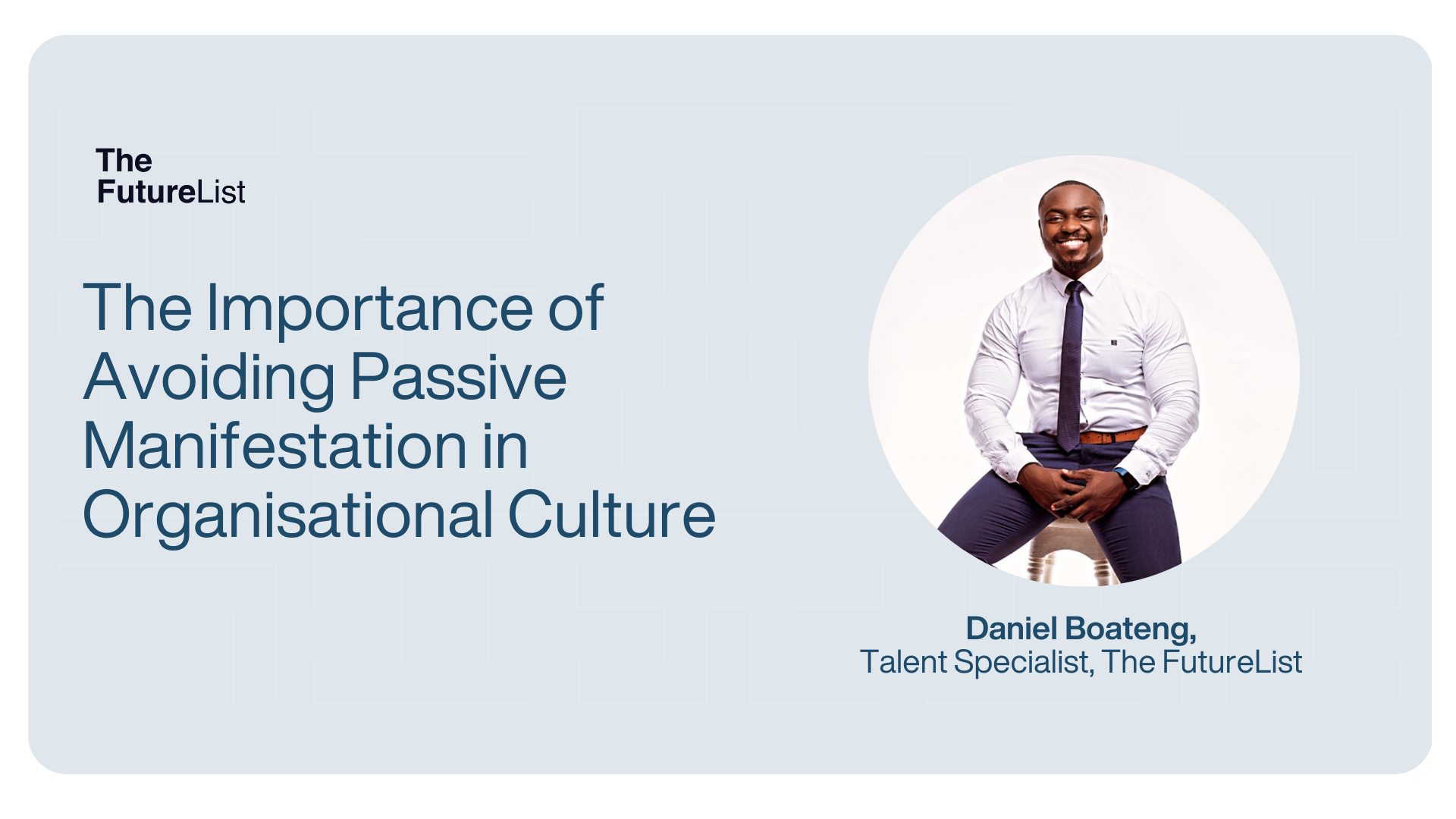
Importance of Avoiding Passive Manifestation in Organisational Culture
As someone fortunate enough to have worked in organisations that placed a significant emphasis on company culture, I’ve witnessed firsthand the power of intentionally shaping and cultivating the way culture manifests itself within an organisation, as these organisations didn’t merely let culture evolve on its own or allow the personal cultures of individual staff members to dictate what the organisation stood for.
Instead, they actively worked to shape and reinforce a culture that aligned with their values, mission, and vision. This experience has taught me the vital importance of not only hiring individuals who align with the organisation’s culture but also actively immersing employees in that culture to ensure a deep understanding and alignment. In this article, we delve into the importance of intentionally cultivating company culture and the risks associated with allowing it to evolve organically.
Misalignment with Organisational Goals: One of the primary risks of allowing company culture to develop without intentional shaping is the potential misalignment with organisational goals. Without clear guidance and direction, culture may evolve in ways that are not aligned with the company’s mission, vision, and objectives. This can create a disconnect between employees’ values and the organisation’s strategic priorities, hindering progress and success.
Inconsistency Across Teams: Another challenge that arises from the lack of intentional shaping is inconsistency across teams or departments within the organisation. Without a unified culture, different teams may develop their own subcultures, leading to fragmentation and silos. This can impede collaboration, communication, and cohesion across the company, ultimately affecting overall performance and effectiveness.
Risk of Toxic Culture: Left unchecked, company culture may veer towards toxic or unhealthy behaviours, such as micromanagement, fear-based leadership, or a lack of transparency. Toxic culture can have detrimental effects on employee morale, well-being, and productivity, leading to high turnover rates, low engagement, and reputational damage for the organisation.
Attraction and Retention of Talent: A well-defined and positive company culture is crucial for attracting and retaining top talent. However, without intentional shaping, the organisation may struggle to appeal to the right candidates and retain employees who are aligned with its values and culture. This can result in difficulties in recruiting, increased turnover costs, and challenges in maintaining a high-performing workforce.
Impact on Employee Engagement and Performance: Culture significantly influences employee engagement, satisfaction, and performance. A culture that is not intentionally shaped may lack clarity, purpose, and direction, leading to disengagement, reduced productivity, and underperformance. Employees thrive in environments where they feel valued, empowered, and supported, and intentional shaping of culture is essential to creating such an environment.
Adaptability and Resilience: In today’s dynamic business environment, organisations need a culture that is adaptable, agile, and resilient. Without intentional shaping, the culture may become stagnant or resistant to change, making it difficult for the organisation to innovate and respond effectively to market shifts. Intentional efforts to shape culture ensure that it remains flexible, open-minded, and responsive to evolving needs and challenges.
In conclusion, shaping company culture is a critical task that requires intentional effort and commitment from organisational leaders. By defining core values, fostering open communication, providing leadership development, and actively reinforcing desired behaviours, organisations can create a positive and aligned culture that drives success and sustainability.
With intentional shaping, company culture becomes a strategic asset that enhances employee engagement, attracts top talent, and enables organisational agility and resilience in a rapidly changing world.
At The FutureList, we understand the importance of building a strong tech team that aligns with your specific goals and requirements. Our dedicated team of experts and talent partners are here to provide personalised advisory sessions to assist you in assembling a top-notch tech team through navigating the complexities of talent acquisition and creating a dynamic team that drives your organisation’s success. Don’t hesitate to reach out to schedule an advisory call here.
Get innovation insights from The FutureList weekly. Subscribe to our newsletter here
Categories
- Agritech
- Artificial Intelligence
- Biotech
- Blockchain
- Climate Tech
- Data Infrastructure
- Edtech
- Events
- Fashion
- Fintech
- Healthtech
- Infrastructure
- Innovation Memos
- Innovation Scout Program
- Insight
- Insurtech
- Machine Learning
- Martech
- Mobility
- Music and Media
- Partner Offers
- Perks
- Procurement
- Proptech
- Retailtech
- Ridehailing
- Ridesharing
- Robotics
- Space Aviation
- Supply Chain
- Talent
- Telecoms
- Uncategorized
- Venture Capital
- Wastetech
- Women In Tech